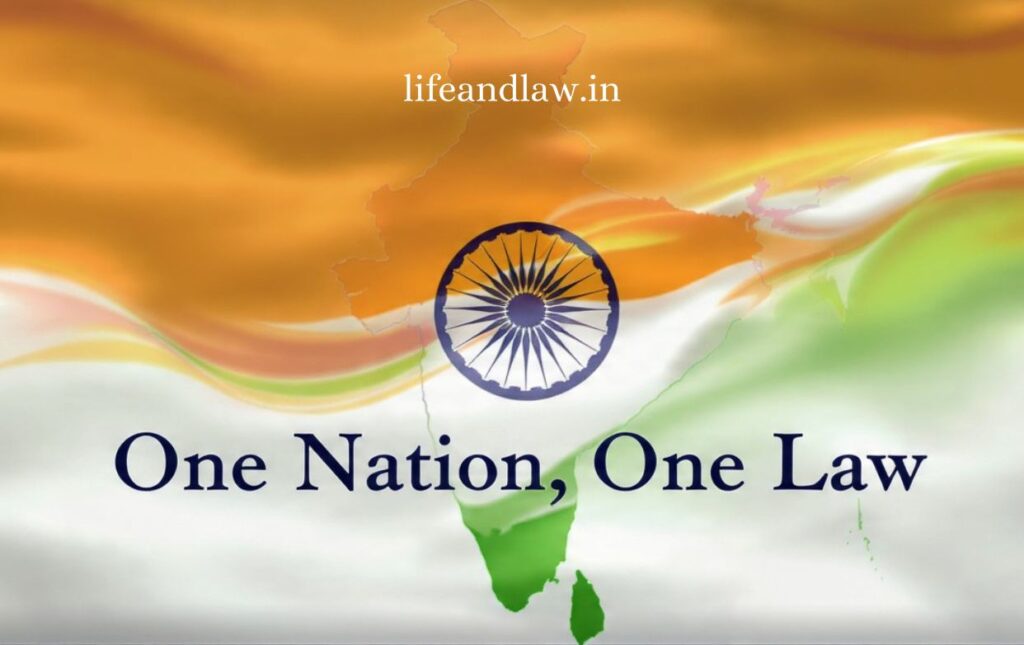Trending

India is a place of immense diversity — languages, cultures, beliefs, and traditions change from state to state — but a common thread runs through them all: oneness. Unity, both legally and socially, remains critical for maintaining peace, equality, and justice in such a diverse community. The notion of “One Nation, One Law” represents the vision of a unified legal framework in which all individuals, regardless of background, are treated equally under the rule of law.
As we commemorate Unity Day, it is more vital than ever to consider how the rule of law can act as a unifying force in a world divided by social, regional, cultural, and economic differences. This article investigates how the legal system may be a powerful tool for fostering unity in diversity, particularly in diverse nations such as India.
Unity Day is a global day dedicated to the ideas of harmony, solidarity, and collaboration among individuals, communities, and countries. While different countries perceive unity through their own sociopolitical lenses, the overall goal remains the same: to increase understanding, minimise division, and build a peaceful world based on mutual respect.
The day invites people to think about issues like discrimination, inequality, systematic injustice, and societal division and how they can be addressed via education, empathy, and strong legal frameworks. It also serves as a reminder that unity is more than an emotional appeal; it is a structural aim that must be reached via equitable treatment, shared rights, and joint obligations.
The notion of “One Nation, One Law” advocates for a uniform legal system that treats all people equally under the law, regardless of religion, caste, gender, or area. This notion does not advocate for eradicating difference, but rather emphasises that diversity must exist within the context of equal rights and justice for all.
In India, for example, this concept frequently arises in discussions concerning legal diversity, notably with personal laws that differ amongst religious communities. Many multicultural countries around the world face similar questions: can a community tolerate cultural differences while adhering to a single legal standard that assures equality and justice?
The answer is to strike a balance between recognising cultural customs and ensuring they do not infringe constitutional or human rights principles. A unified legal system promotes social cohesiveness, strengthens national identity, and upholds justice and responsibility.
Law is more than a set of rules; it is a social contract that brings people together under a common framework of rights and obligations. A just legal system is the foundation for peaceful cohabitation in any democratic society.
In countries around the world, including India, the Constitution protects fundamental rights such as equality before the law, freedom of expression, and protection against discrimination. These rights are essential for unity because they ensure that no one is above or below the law.
Courts and judicial institutions play an important role in this matter. By interpreting laws in light of evolving society requirements and defending minority rights, they ensure that the rule of law is inclusive. In this approach, the legal system serves as an instrument for compassion and justice, rather than just control.
Despite its virtues, the concept of “One Nation, One Law” is frequently faced with opposition – appropriately so. Many cultures operate under plural legal systems, in which distinct communities adhere to diverse laws, particularly in personal concerns such as marriage, inheritance, and adoption.
This presents hard questions:
Should custom trump constitutional equality?
How does the law balance cultural autonomy and individual rights?
Furthermore, regional inequalities, political polarisation, and a lack of legal awareness impede the application of uniform legislation. Some communities may feel marginalised or fear losing their identity under a unified legal system. As a result, public participation, education, and dialogue are critical to achieving consensus and trust in law reforms that promote unity.
Unity Day reminds us that unity is built on inclusion, not assimilation. While national laws may differ, the universal values of human dignity, fairness, and equality are unchanging.
For countries like India, and indeed the world, the goal should not be forced uniformity, but an equitable legal framework that offers all persons with equal rights and opportunities, regardless of their background.
The day invites governments, educational institutions, and civil society to contribute to a more cohesive and legally fair society by fostering legal literacy, campaigning for inclusive laws, and empowering marginalized voices.
On Unity Day, the notion of “One Nation, One Law” emphasises how justice and equality may bridge societal divides. True unity does not eliminate distinctions, but rather promotes fairness, guaranteeing that all individuals are treated equally under the law. A just and inclusive legal system is the foundation of a peaceful and cohesive society.
In his legal observations and articles presented on platforms such as www.asmlegalservices.in and www.lifeandlaw.in, Adv. Abdul Mulla emphasises the need for responsibility and shared legal values in fostering national and global unity.
Adv. Abdul Mulla (Mob. No. 937 007 2022) is a seasoned legal professional with over 18 years of experience in advocacy, specializing in diverse areas of law, including Real Estate and Property Law, Matrimonial and Divorce Matters, Litigation and Dispute Resolution, and Will and Succession Planning. read more….
Copyright BlazeThemes. 2025